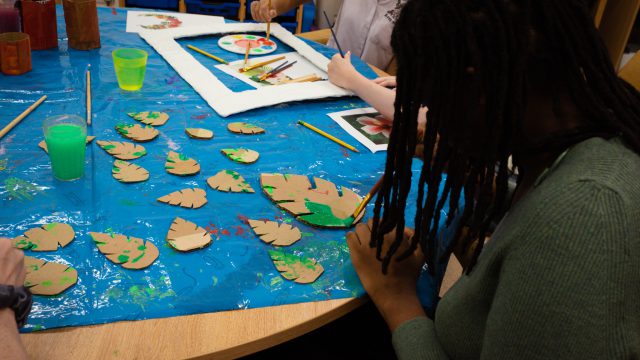
Community Inclusion
Pathway Overview
The Pathway to Community Inclusion provides each learner with an individualised curriculum that meets their needs set out in their Education Health Care Plan (EHCP). The pathway focuses on communication skills, in particular choice making skills and places emphasis on each learner being able to make their wants and needs known. This pathway also develops personal safety skills, life skills and personal care skills. The learners in this pathway spend time accessing different places in the community and engaging in community activities in order to develop their individual hobbies and interests. Each learner within the pathway has an Individual Learning Plan (ILP), this will include baseline assessment information, long and short term outcomes and their individual objectives for learning for the term.
Pathway Intent
To use the Preparation for Adulthood (PfA) Framework to offer a person centred, creative and challenging curriculum that is co-produced with the learner. To embed English, maths and ICT, British Values, Prevent and Safeguarding through-out the curriculum. The curriculum strands from the PfA that this pathway focuses on are:
Good Health
- Health
- Wellbeing
- Diet
- Sensory needs
- Physical health
- Emotional health
- Mental health
Independent Living
- Independent living skills
- Personal care
- Eating and drinking
- Personal safety
- Online safety
- Mental capacity and choice making
- Transitions
Friends, Relationships and Community
- Communication
- Friendships and relationships
- Social skills
- Enrichment activities
- Hobbies and interests
- Belonging to different groups
- Behaviour
- Community safety
- How to use community services
Employment
- Following rules, guidance and instructions
- Careers advice and guidance
- Enterprise
Pathway Implementation
- Learners in this pathway have the correct staffing ratio that is relevant to their needs
- Learners have termly objectives that are worked on weekly, and are linked to their short and long term EHCP outcomes. Their objectives will be displayed at all times in the classroom, and in their work books.
- Learners will engage in both individual and group work
- Learners will access the community and other pathways where relevant
- Learners will work with therapists where relevant
- Individual Learning Plans will detail the implementation for each learner termly
- The learners in this pathway will complete activities that are meaningful to them and their individual lives.
- Each learner has a timetable that meets their individual needs and covers the four areas of the PfA framework. This timetable will include the objectives they are working on for the lesson.
- Learner objectives will be displayed in the classroom alongside the timetable.
- At the beginning of each session or activity, the learner will be told the objective they are working on. They will review the same objective at the end of the session or activity and provide feedback through their individual means of communication
- Teaching and support staff will also provide the learner with written or verbal feedback
- Learners will be stretched and challenged at every relevant opportunity, details of how each individual is being stretched and challenged will be in their ILP
- Learning will be sequenced to ensure each learner can build upon previous knowledge and skills. This will be evident in the planning on their ILP
- Differentiation will be evident and will be dependent upon learner needs. The differentiation will ensure that all sessions and activities are accessible and achievable to all learners
- Teaching will be adapted where necessary, to provide differentiated approaches to ensure all learners can access activities and sessions
- Resources will be prepared in advance and adapted to meet individual and communication needs
- British Values, Prevent and Safeguarding will be embedded into the curriculum. Evidence of embedded content can be found on the ILP
Pathway Impact
- Learners will make progress towards their individual objectives, short and long term outcomes on their EHCP
- AQA Unit Award Scheme
- Progress will be monitored through Databridge, written and verbal feedback following the ‘what went well, even better if’ feedback system
- Individual Learning Plans will be updated with progress for each learner termly
Pathway Destinations
- A day centre
- A social care setting
- A personal assistant
- Community activities
